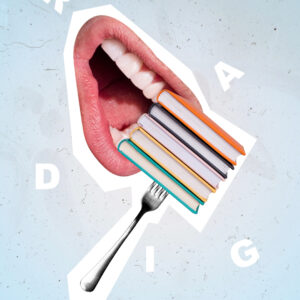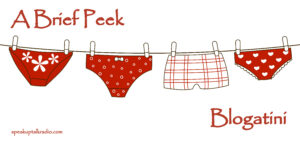Open Your Big Mouth And Edit! by John Blossom

Anyone who has ever written a novel knows that it can completely mess with your sense of time. You finish your first draft and think, “Wow, I did it. That sure took a long time!” Then after your fifth or sixth rewrite, you realize that completing a first draft is just the beginning. This is not news. All the writing books are very clear on this fact: writing is rewriting, over and over again. What most don’t tell you, however, is that once you have rewritten to your eye’s satisfaction, there is a whole other series of revisions still to come – the ones you do with your mouth.
We pay “lip service” to the benefits of reading final drafts out loud. Most people know it is a great way to catch technical errors that our eyes naturally skip over after looking at the same words for months on end. As an English teacher, I insisted that my students read their essays out loud before handing them in. Did they do it? Maybe some did, the ones who got A’s. Do I do it as a writer today? Yes, but until recently not nearly as much as I should have. There is a deeper purpose to editing out loud than just catching technical errors.
It is commonly theorized that because writing evolved in humans much later than speech, it is more of a struggle for us. I agree with that. The only advantage of writing down a story over telling one to a friend at dinner is that we get more time to think about it, and as a result we come up with complicated and fascinating original structures and ideas. We can do a deep dive into setting, character, theme, style, whatever we want. We can also end up with a manuscript that is pure torture for our poor readers to wade through.
Enter editing out loud. It forces us to listen to something very close to the sound of our writing in the minds of our readers. Yes, it catches technical errors, but if we give reading out loud the full chance it deserves, it has the capability of transforming our most brilliant and complicated compositions into sounds that are actually pleasant for the reader to hear.
These days I read “finished” work out loud to myself paragraph by paragraph. If I stop to make an edit, I require myself to read the whole paragraph again out loud twice before moving on. Often I do this while wandering about the house holding my laptop in my hand. The constant change of background scenery helps my vocal reading mind to reset with each room I stumble into. It thinks that it is reading something fresh and new because the scenery in my peripheral vision has changed and must be noted. (If you ever go into a different room to do something and forget why you went there, you get the idea. The brain has to refresh itself to the new surroundings.) As I walk around, I pretend I am a reader hearing the story for the first time in a new setting. The paragraph has to be compelling enough to grab my distracted mind’s attention, or else I rewrite it and read it out loud again in a different room.
I have learned that I have finally done enough if I can read the whole novel out loud again a week or two after the paragraph by paragraph process and there are no further changes. If there are changes, I force myself to go paragraph by paragraph again. Yes, it’s a long and tedious process but very worthwhile, like practicing the same piece on an instrument over and over again to get it right.
And, yes, what I’m ultimately looking for is music in the structure and sounds of the sentences and words. Does it flow? Did my voice catch a word that I repeated unnecessarily from the paragraph before? Do the words correspond to the expected ones that come up naturally in my ear as I read the work out loud? I want my readers to anticipate the music ahead of time and even rely on the inevitably of words that are coming ahead on the page, even if the ideas contained in them are complicated and new. Unexpected words can be jarring and take a reader right out of the story, not unlike when an audience member’s cell phone goes off at just the wrong moment. When you stumble upon that cell phone blast in your writing, your voice will naturally present better options so that the music of your prose will flow, and flowing prose will lead to a more satisfying reader experience.
So, befriend that little noise maker in your throat! It’s like your very own line-editor and proof-reader waiting patiently for you to recognize its evolutionary superiority. The sound of our writing is every bit as important as the content, maybe even more so. Edit with your voice at least as many times as you edit with your eyes, and you will be much more satisfied with your results.
